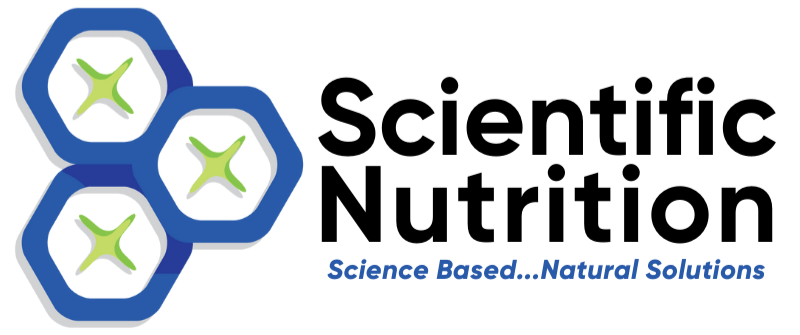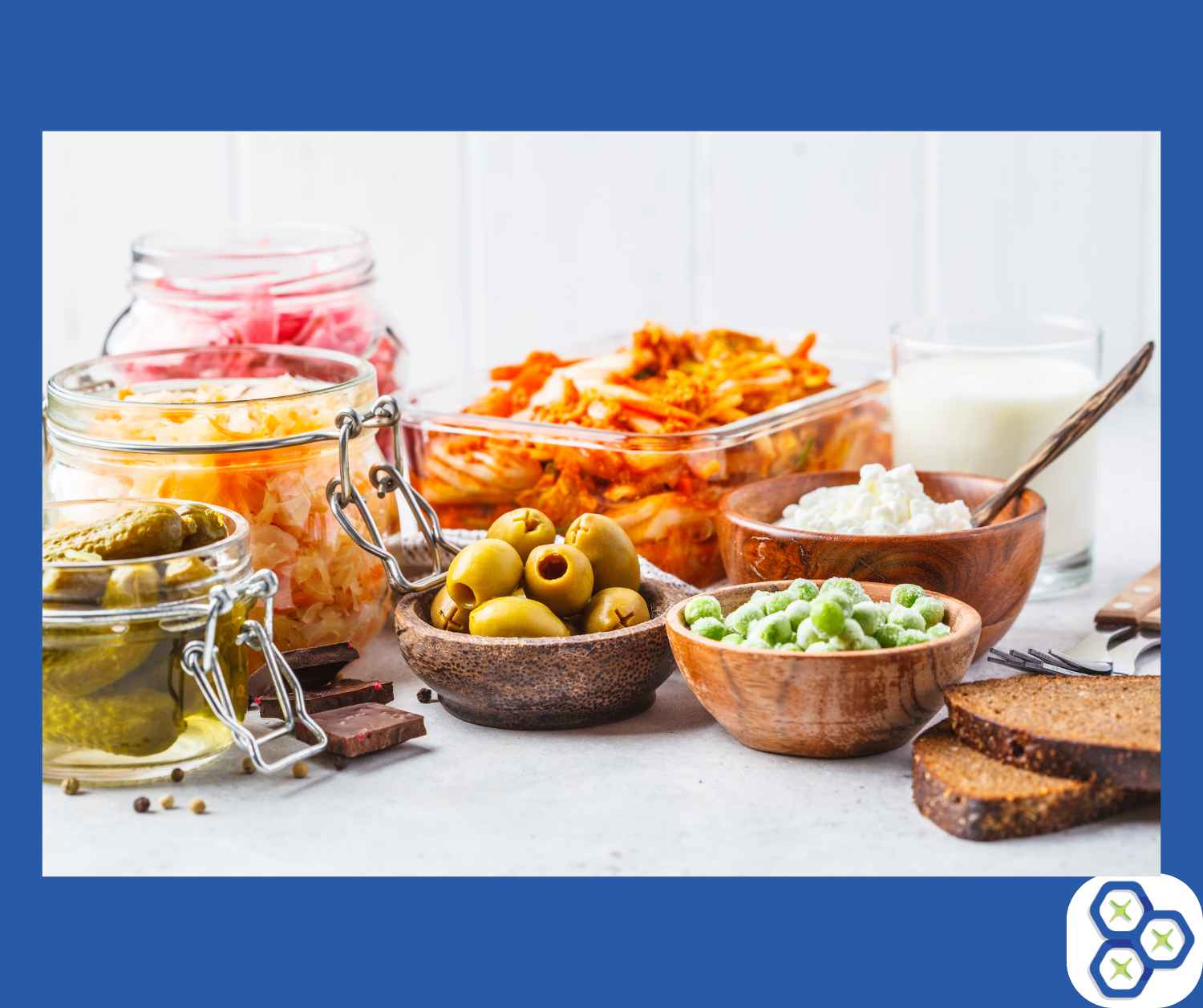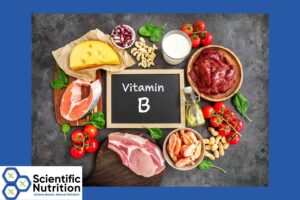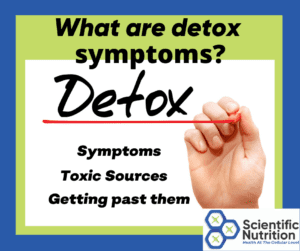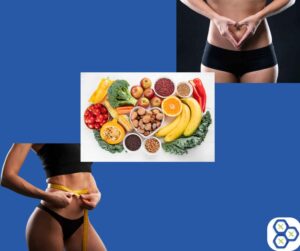Why Do I Need Probiotics?
Probiotics fill our gut. Our intestines are about 15 feet or the surface of about the size of a tennis court (2,700 square feet). In fact, the gut can rebuild itself every 7-14 days and is approximately 80% of our immune system so caring for it is life or death.
We have up to 10X more bacteria than we do human cells and contain 2-5 pounds of crucial, live bacteria!
These phenomenal keepers of our health, communicate with every aspect of our human body to protect us from illness. Some bacterium can lie dormant, be neutral, or extend into our human cells which is why these fighting probiotic strains of bacteria are needed to keep them in balance.
What Do Probiotics Do For Your Gut?
Our gut lining needs to be selective in blocking heavy metals, toxins, parasites, and bad bacteria yet be semi-permeable to allow nutrients through. Your skin is 7 layers deep whereas your gut lining is a single layer of epithelium tissue that forms sheets of cells.
This almost transparent lining is on the top and bottom (yes they know which is up and down). The sides are primarily dense protein layers called tight junctions.
These junctions are like zip lock bags that are regulated by Zinc. Vitamins A & D are essential fat-soluble vitamins that regenerate all tissues including these tight junctions that open for nutrients and block too large of particles or toxins.
Stem cells are the glue holding them shut and repairing elements when they are loose. When one has a leaky gut from toxins, alcohol, etc. the stem cells are not able to keep up.
Can I Have Too Many Probiotics?
The most common side effects are a bit of bloating and gas when a probiotic is first introduced. These good bacteria produce sulfur-containing gas as a byproduct of digestion. When we eat cruciferous vegetables (cabbage, Brussel sprouts, etc.) or foods that are higher in natural sulfur we tend to experience increased gas.
If you have these symptoms take half the supplemental dosage or cut down on the foods so that your body can adjust before increasing them again.
Who Should Not Take Probiotics?
The most common strains are Lactobacilli and Bifidobacteria. They are normally safe but in some cases, people need to avoid taking supplementation or ingesting certain foods as it can trigger inflammation throughout the body.
SIBO which is small intestinal bacterial overgrowth is one illness that slows digestion causing an imbalance that allows the bad bacteria to dominate. In this case, Lactobacilli can be harmful and they must be avoided.
In opposition, C-Diff (clostridium difficile) which is another overgrowth of bad bacteria is often times triggered by overuse of antibiotics. It has been treated with Lactobacillus rhamnosus GG, Bacillus strains, and Saccharomyces boulardii (a form of baker yeast).
At times it’s used for those treated with specific anti-biotics as probiotics to restore balance. Not only can C-Diff cause the same inflammation as SIBO, but it can be easily spread through feces when good hygiene practices are not used and can be deadly.
If you have a digestive issue it is always best to get help from your gastroenterologist or you call me for some assistance.
Which Probiotic Bacteria Are Best?
There are many strains of probiotics. Some are better for certain conditions or needs.
Probiotics for digestive issues:
Bacillus Coagulans prevents IBS diarrhea and stomach ulcers in both children and adults by stopping the growth of bad bacteria.
- Longum breaks down carbohydrates, prevents bad microbes from multiplying, and reduces seasonal allergies.
- Rhamnosus helps in digesting lactose in dairy, builds the immune system, prevents UTIs (urinary tract infections) as well as facilitates weight loss.
For immune system functions:
- Bulgaricus is a detoxifying bacteria within your intestinal lining which can also produce its own natural antibiotics.
- Lactis can help to prevent diarrhea and fight infections for a faster recovery.
- Bifidum stops bad bacteria from multiplying, increases immunity, and increases digestion.
Using probiotics for weight loss:
- Gasseri has been shown in a number of clinical trials to reduce abdominal fat, lower cholesterol, and ease painful menstruation.
Probiotics for bowel issues:
- Acidophilus can boost the treatment of digestive tract pathogens such as the production of lactase to digest dairy, decrease yeast overgrowth, relieve IBS symptoms, and aid in recovering from respiratory infections.
- Casei and L. Plantarum can help with digestive issues related to Crohn’s Disease, ulcers, digestion, and gastrointestinal issues. L. Plantarum can also assist with colitis as it aids in preserving critical vitamins, nutrients, and antioxidants.
- Salavarius helps to make enzymes that kill bad bacteria that cause bad breath, bloating, and gas.
How do I pick a good probiotic product?
When trying to decide on a probiotic get specific! Find the right one for your symptoms or diagnosis. A few things to look for would include:
- A combination of strain & sub-strain diversity of at least 8-12 and types
- One that lists the exact CPUs of each strain so that cheaper ones are added to hype the numbers
- High number of CPU (Colony Forming Units) of 40-50 Billion minimum
- A prebiotic to “feed” the probiotics
- A product that can be stable enough to live at room temperature (not needing refrigeration)
- One with no soy, dairy, gluten, preservatives, or filler (rice flour)
My top picks for brands of probiotics:
1-Garden of Life Raw Probiotics Ultimate Care, 100 Billion, 34 strains
2-Floratrex, 75 Billion CFU, 25 live & active strains plus prebiotics
3- 1MD Complete Probiotics Platinum, 50 Billion CFU, 11 strains
4-Garden of Life Once Daily Ultra, 90 Billion CFU, 15 strains (potent but must be refrigerated)
5-LiveWell Pro-45, 45 Billion, 11 strains
6-Synbiotic 365 with 20 Billion CFU, 14 strains. You may need to increase the dosage when adjusted.
7-LifeVantage Probios with freeze-dried layers of 6 Billion CFU & strains to get past the gut digestion acids
8-Gutbomb 350 Billion, 18 strains. This is incredible for extreme or serious gut issues
Which Foods Are Full of Probiotics?
In addition to supplements, you can increase the ingestion of probiotic foods to add are garlic, onions, kombucha, kefir, and sauerkraut. Good herbs or spices to add to improve digestion may be ginger, horseradish, cardamom, oregano, nutmeg, cayenne pepper, clove, turmeric with Bioperine, and pumpkin seeds.
Gut health not only affects us physically but mentally and emotionally. Your brain and your gut are in constant communication. In fact, the gut produces 90% of your serotonin and dopamine which are our feel-good chemicals linked to depression. The gut microbiota balance, mineral balance, immune system, and nutritional absorption are how you can measure your health.
Hair Analysis and Probiotics
When you use a Hair Analysis to look into your cells, you can see exactly where you need to improve ALL of your health through these avenues.
Instead of masking symptoms, see where your minerals are and your heavy metal toxicity. You’ll be able to optimize your gut, thyroid, adrenals, stored sugar, and cell membrane defenses. This helps to restore your microbiome health.
LET’s CHAT about your health goals! Today is THE day for you to make the needed changes.
To learn more go about how probiotics can improve your health.
Copyright Scientific Nutrition, LLC 2020
